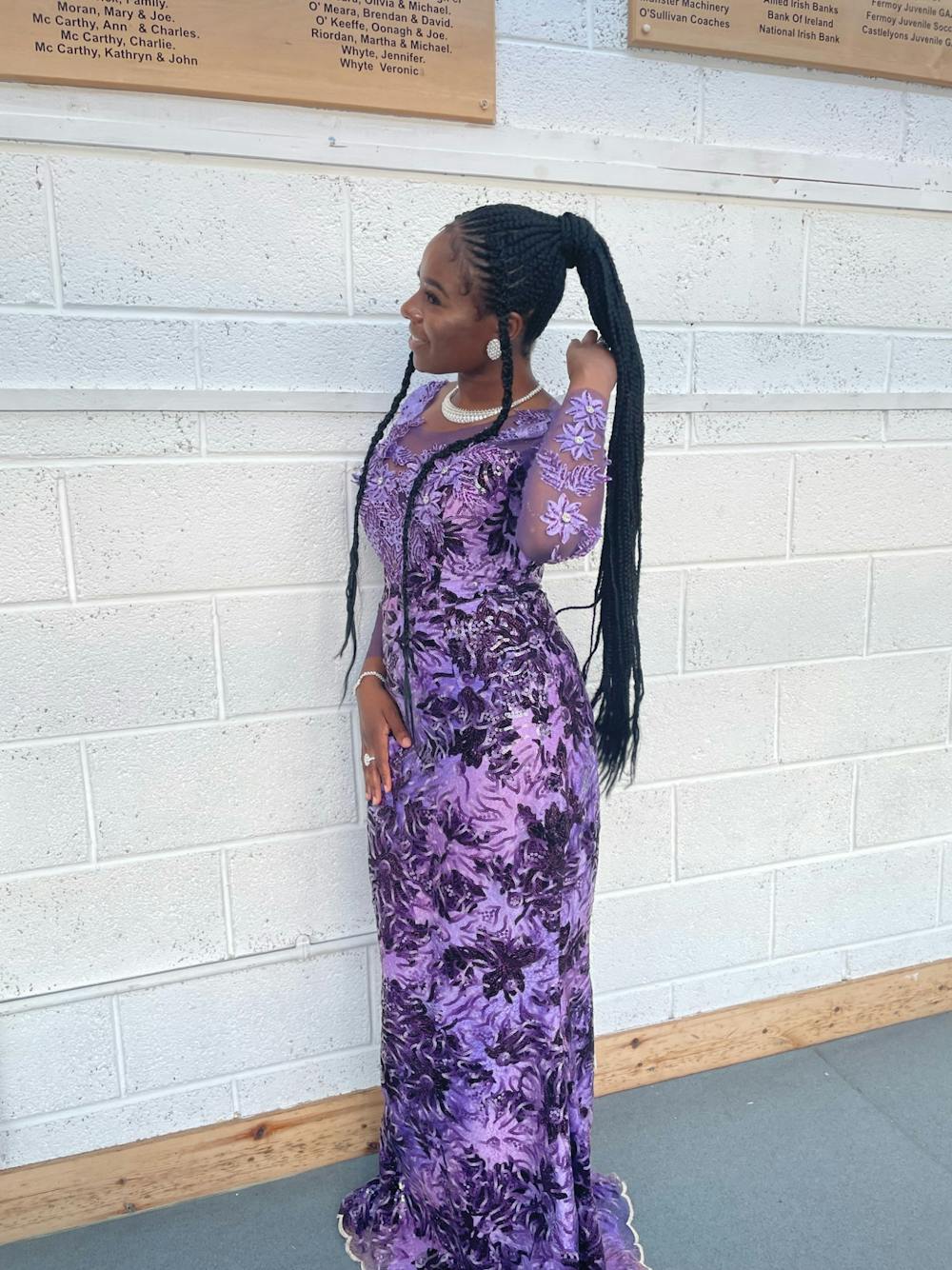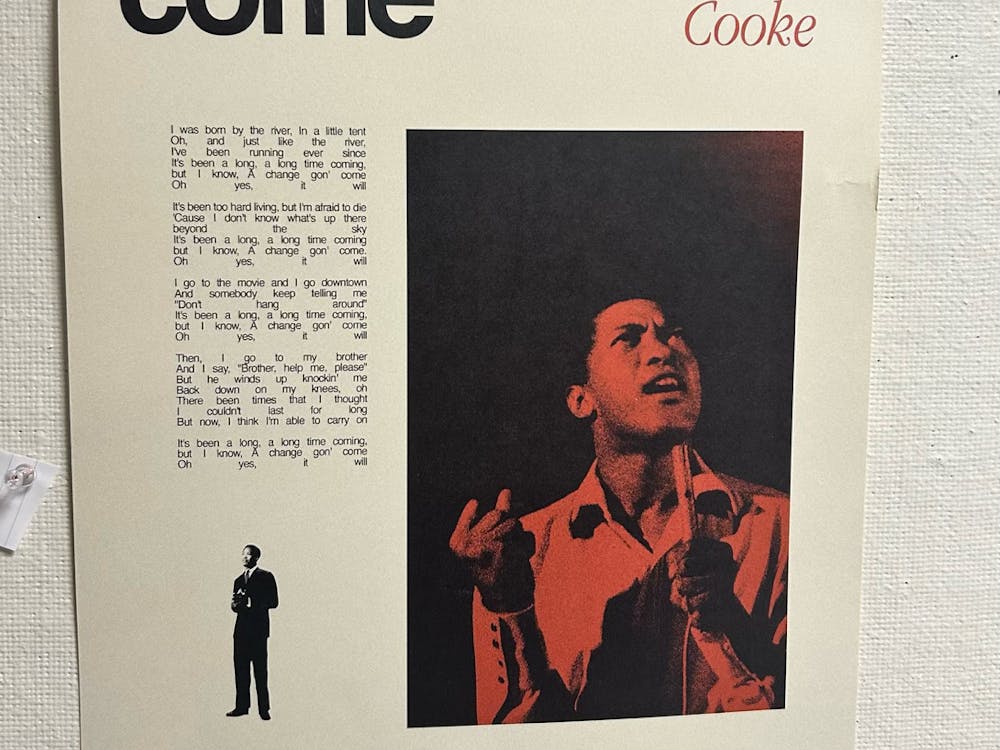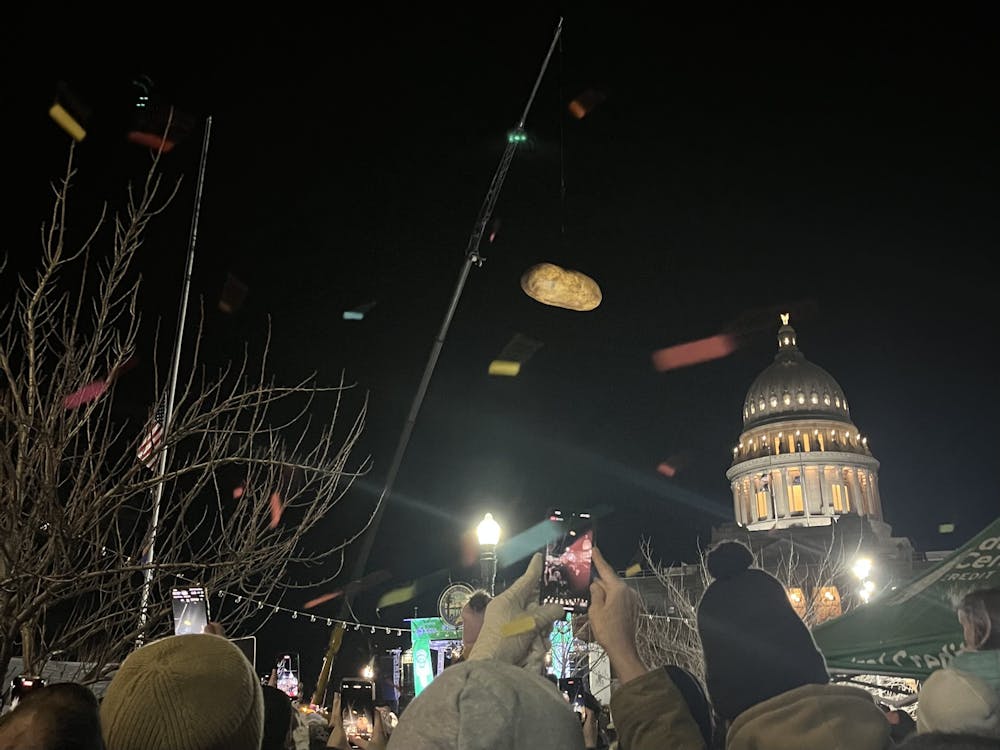Being African in the mid-2010s earned me rude comments on my appearance, my food and my way of communication. I used to evade inquiries into what I wore to Nigerian parties out of fear that people would see pictures and deem my clothes ugly. I refused to bring anything African for lunch because in my majority white middle school, I had experienced kids making fun of the savory smells or asking for a taste and spitting it out in disgust. I was even afraid for my friends to meet my parents because 1) my mother and father are extremely judgmental, and 2) they would remark on how loud we all laughed or talked.
Now, I couldn’t care less what anyone else thinks about my Nigerian heritage. Fortunately, some of the world has caught on to the beauty of Africa, so defiance in the face of ridicule is no longer a constant issue. I have had the amazing opportunity to not only share but explore my own culture in the past four years.
Despite the pain of freshmen fall pre-med courses, I took each Saturday off for two months to practice for the annual (and beautiful) African Students Association Fashion Show. When I say those were the most terrifying but riveting moments of my life, I mean it. I was completely out of my comfort zone. In modeling, you rely on your body to present not only you but also the clothes. Yet, I was always getting caught up in the former. It did not help that my dancing skills (and general coordination) could use some serious work.
However, these Saturdays also meant that, on a day out of the seemingly endless week of classes, I hung out with other Africans here on campus. There was never a dull conversation. Even within Nigeria itself, we have tribes, and as a Yoruba girl, I shared similar and differing experiences in upbringing with those who were Hausa or Igbo. My friends with parents from Ghana and Senegal fought at least one time a day over whose jollof rice was the best (even though Nigeria takes the crown). The result of those fun Saturdays was a presentation of the bold beauty that is the whole African continent.
I participated in the fashion show the following year (of course) but I was not able to participate in my junior year. I was not totally sad that I was unable to walk, though, because in the fall of 2023, I studied abroad at the University of Oxford, St. Anne’s College. This was another mind-altering adventure for me — in a different way than the fashion show was — and I can now easily say that studying abroad was a pivotal experience.
I met Africans, but I also met people from Japan, China, Ireland, Italy, India, Pakistan, Korea and many more countries. There were so many things that were different about our culture but also so, so many things that were the same — from the specific aspects like food containers containing everything but the food they advertised to the general aspects like strict parents who valued education a little too much.
Moreover, their identities weren’t solely based on the country they or their parents originated from. Yes, I am of Nigerian heritage, but I’m also Christian, Black, female, in my 20s and so much more. When stacked on each other, these individual lenses explain who I am and why I make the decisions I do. And though these are lenses I’ve had for a while, I had never looked at myself through them. Only after long conversations in closed St. Anne’s coffee shops (shout out STACS), listening to music with friends in jazz pubs or talking to teammates during rowing practice did I learn what intersectionality truly meant. And I believe that it is a concept that you never appreciate until you see it illuminated in others.
Popping back over to my Hopkins experience, I threw a birthday party at my house. Now, this may sound normal to some, but — trust — a party in an African household is no causal thing. I can count on a single hand how many times friends have come over in my whole lifetime (Nigerians are lovely people, but they do like their space). While the organization was no fun, the party itself was.
I did not realize until my party happened how seriously my worlds were colliding. My immediate and extended family were there as well as my friends from church, high school and Hopkins. And I had the privilege of showing them all the amazing-ness that is Nigerian food, music and clothing. Nothing was better than that.
And, as traditional for even a small Nigerian birthday celebration, multiple outfits must be worn. I greeted my guests in a pretty orange and gold dress with fabric my aunt helped pick out. Later in the night, I took pictures in front of my cake in a bejeweled brown gown my mother found the design for. I then bid them all goodbye in my favorite dress of the evening: a gold-detailed chocolate Aso Oke outfit, the fabric of a traditional handwoven cloth dating back to the beginning of Yorubaland itself.
There are many more instances of sharing my culture that I could talk about, like the time I partied it up with friends at a Nollywood-themed (Nigerian version of Hollywood that encompasses their film industry, fashion and celebrities) party hosted by the African Students Association, visited friends with origins in Ethiopia and Nigeria in London, had a wonderful Christmas formal dinner with Oxford’s African Student Union or ate a late dinner with my Irish-Ukrainian cousins.
The wonderful thing about culture is that it begs for communion — to be shared and felt and tasted and seen and loved. By its nature, it is not something that can be kept to oneself, and I realized that more and more as I explored the world. I can’t say that I’ve been everywhere, but I can say with confidence that culture is everywhere. And in most cases, it’s absolutely beautiful.
Maryam Amosu is a senior from Waldorf, Md. majoring in Neuroscience.





